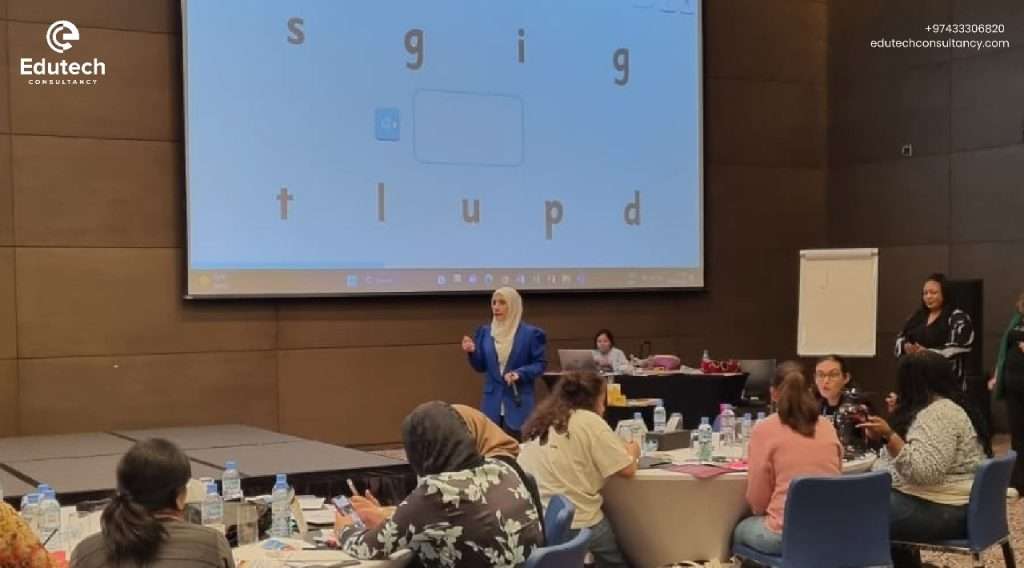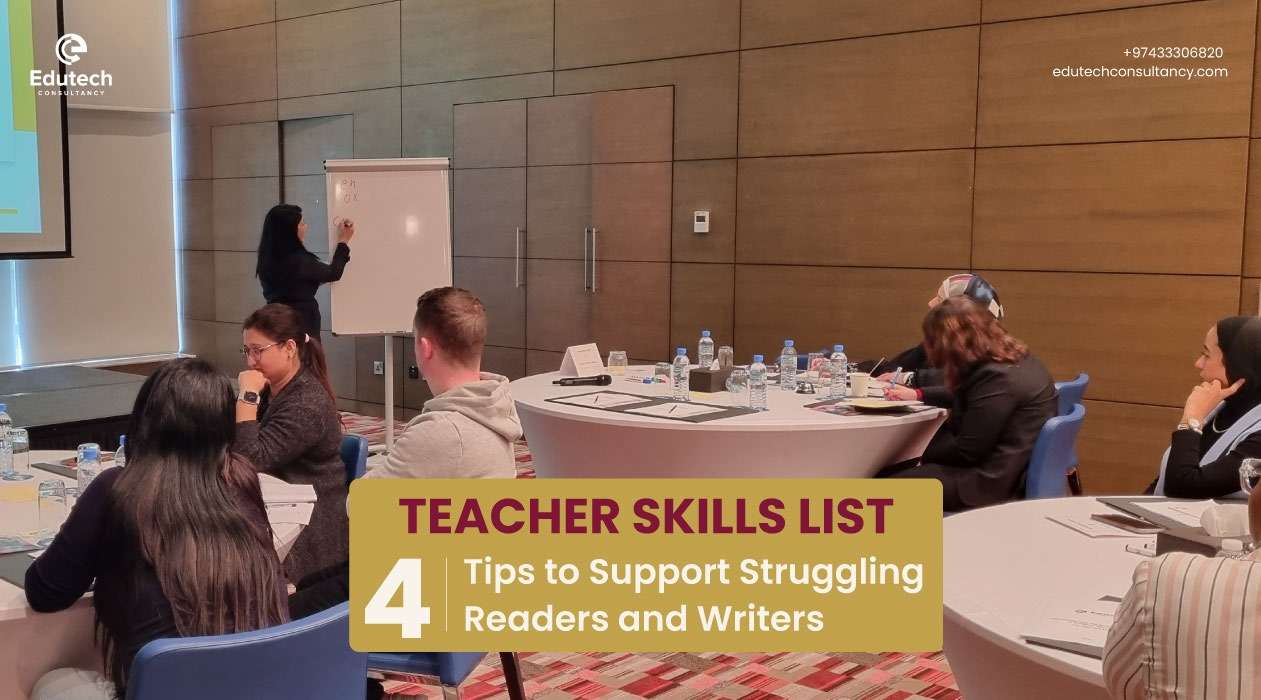Introduction
Having struggling readers and writers in the classroom is a significant challenge for teachers. Teachers with efficient skills play an important role in helping such students. Therefore, students can overcome these difficulties and become confident in reading and writing. Hence, today in our blog we will introduce teacher skills list. These skills are vital for every teacher to acquire because this will help address these challenges of reading and writing in students effectively.
When these challenges are addressed successfully, it consequently improves the overall learning and success ratio in students in academics as well. In short, we can say that proficient reading and writing skills are a top priority when a teacher wants to support their students in this literacy journey.
Understanding the Teacher Skills List for Struggling Readers and Writers
Teachers as skilled individuals require a specialized set of skills that go beyond traditional teaching methods. They must possess a deep understanding of literacy acquisition. Coupled with that, they must have a strong command on the strategies that address unique challenges faced by each student.
Successful teachers must:
- Adopt a growth mindset
- Build positive relationships with students
- Help struggling learners to overcome problems
- Encourage a supportive classroom environment
- Providing sufficient opportunities for practice with feedback
- Develop the confidence in themselves and their students to become successful readers and writers
Addressing Students struggles in Reading and Writing
Students may struggle in their reading and writing practices for a number of reasons.
Some of these may be:
- Learning disabilities
- Failing to understand the foundational principles
- Lack of exposure to language learning opportunities
But, teachers who are well-equipped with the right reading and writing skill set can instantly identify and turn these challenges of their students into opportunities for growth.
So, let’s explore the techniques that teachers can apply in their classrooms and make a real difference in the literacy experiences of struggling students.
1- Assess and identify challenges for teacher skills list:
The very first step in identifying the specific issues of a student’s reading and writing is a proper assessment and identification process. Accordingly, educators must have efficient assessment skills to identify which student is struggling at what points. Since effective assessments are not just documentation, they provide a basic testing process that allows teachers to observe the pattern of errors in the reading and writing comprehension of students.
Here is the quick checklist how students can be evaluated and assessed:
- Assess reading fluency and comprehension regularly
- Start implementing regular assessment to address student progress
- Check writing samples to identify struggles with structure of writing or grammar.
In addition to this teacher skills list, educators will be able to identify and provide early targeted intervention to students struggling to read and write.
2- Modify instructions to various learning styles:
Differentiated instructions is another vital skill that must be part of a teacher skills list. Every student learns differently. As a common saying one-size-fits-all approach doesn’t go well for strugglers in reading and writing. Likewise, the teacher must have the strategic knowledge to adjust the delivery styles that address different learners in their classroom.

Here is short list how teachers can address different learners in their classroom:
- Aid text comprehension with visual and digital tools
- Provide reading materials with different learning levels
- Creative writing assignments in variations to improve learner’s proficiency at different levels.
3- The foundations of Phonics with vocabulary building:
Understanding Phonics is a basic necessity when it comes to addressing the struggles of reading and writing in students.
When a student decodes words well and has a strong foundation of Phonics in their skills, they naturally become good readers. Consequently, better reading comprehension enables them to write successfully as well.

Teachers must:
- Include a daily Phonics lesson in practice
- Incorporate word games to improve their phonics fluency and vocabulary building
- Keep a practice corner in the classroom for Phonics with concepts of different sounds and words
4- Focus on the elements of writing:
Writing is not just putting words on papers, it needs a strong background in the basics of writing. These include grammar, punctuation and structure of writing. in fact, teachers should ensure that these basic skills must be taught in deep detail to students with a strong grip. Only then students would be able to understand the mechanics of writing and then apply them successfully without any hurdles.
That being so, it is always recommended to tell students:
- Break the writing tasks into smaller manageable ones.
- Study writing templates provided by teachers in the form of graphic organizers or others.
- Regularly review and revise the grammar, and structure basics to retain more and apply better.
Some bonus tips:
Helping struggling readers and writers involves a great deal of effort on part of teachers. But it should be noted that once done successfully this can be rewarding on a longer run for both teacher and students.
Here are some additional tips for teachers to help struggling readers and writers in their classroom:
- Celebrate their success and achievements
- Encourage daily journaling to improve writing fluency
- Encourage confidence in students with continuous motivation
- Add interactive teaching methods including storytelling and fun activities to make lessons more engaging
- Incorporate balanced approach which includes reading, writing, Phonics and vocabulary practice altogether
- Develop a habit of regular revisions and repetition of things that need more focus or seem difficult
Strengthening the Teacher Skills List with Continuous Professional Development
These practical writing strategies can be extremely helpful and effective to support struggling writers. In addition to this, continuing education to a teacher skills list with professional development is one more beneficial way to keep them stay current with the latest teaching trends.

Attending workshops, webinars and training sessions can introduce them to new methods, participating in teaching communities and forums where teachers exchange ideas and strategies can be another way to learn new experiences.
Join us for the Jolly Phonics Workshop on September 13th!
So, If you want to give your Phonics teaching skills a phenomenal boost that will help your students become confident readers and writers, sign up for our Jolly Phonics workshop and learn effective phonics techniques to add up to your teacher skills list. Thereupon, with our expert instructor you can avail this opportunity to learn engaging activities methods to support your students’ education the proven way!
To register for the workshop click here!


